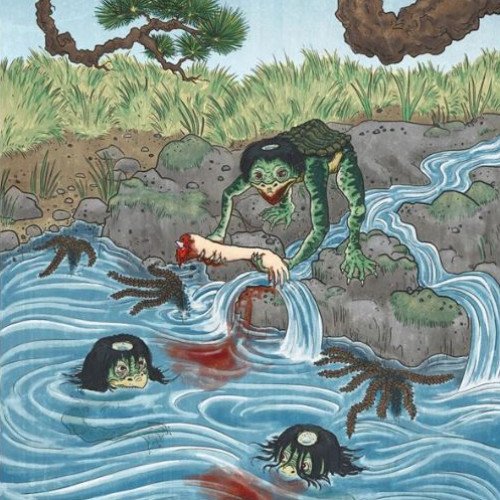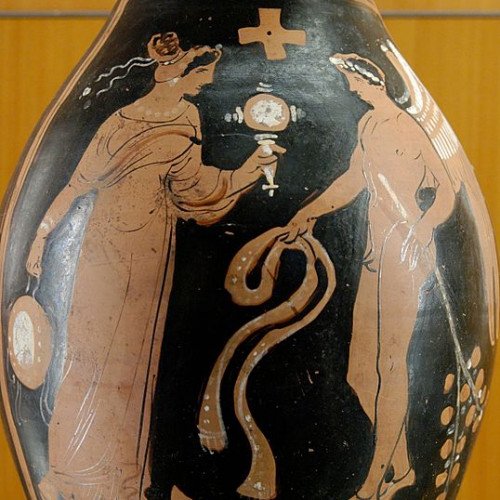Kappa (folklore) VS Daemon (classical mythology)

Kappa (folklore)
A kappa (河童, river-child)—also known as kawatarō (川太郎, "river-boy"), komahiki (駒引, horse-puller), kawatora (川虎, river-tiger) or suiko (水虎, water-tiger)–is an amphibious yōkai demon or imp found in traditional Japanese folklore. They are typically depicted as green, human-like beings with webbed hands and feet and a turtle-like carapace on their backs. A depression on its head, called its "dish" (sara), retains water, and if this is damaged or its liquid is lost (either through spilling or drying up), the kappa is severely weakened. The kappa are known to favor cucumbers and love to engage in sumo wrestling. They are often accused of assaulting humans in water and removing a mythical organ called the shirikodama from their victim's anus.
Statistics for this Xoptio

Daemon (classical mythology)
Daemon is the Latin word for the Ancient Greek daimon (δαίμων: "god", "godlike", "power", "fate"), which originally referred to a lesser deity or guiding spirit such as the daemons of ancient Greek religion and mythology and of later Hellenistic religion and philosophy. The word is derived from Proto-Indo-European *daimon "provider, divider (of fortunes or destinies)," from the root *da- "to divide". Daimons were possibly seen as the souls of men of the golden age acting as tutelary deities, according to entry δαίμων at Liddell & Scott.